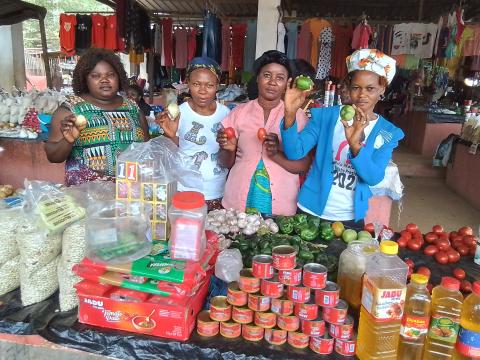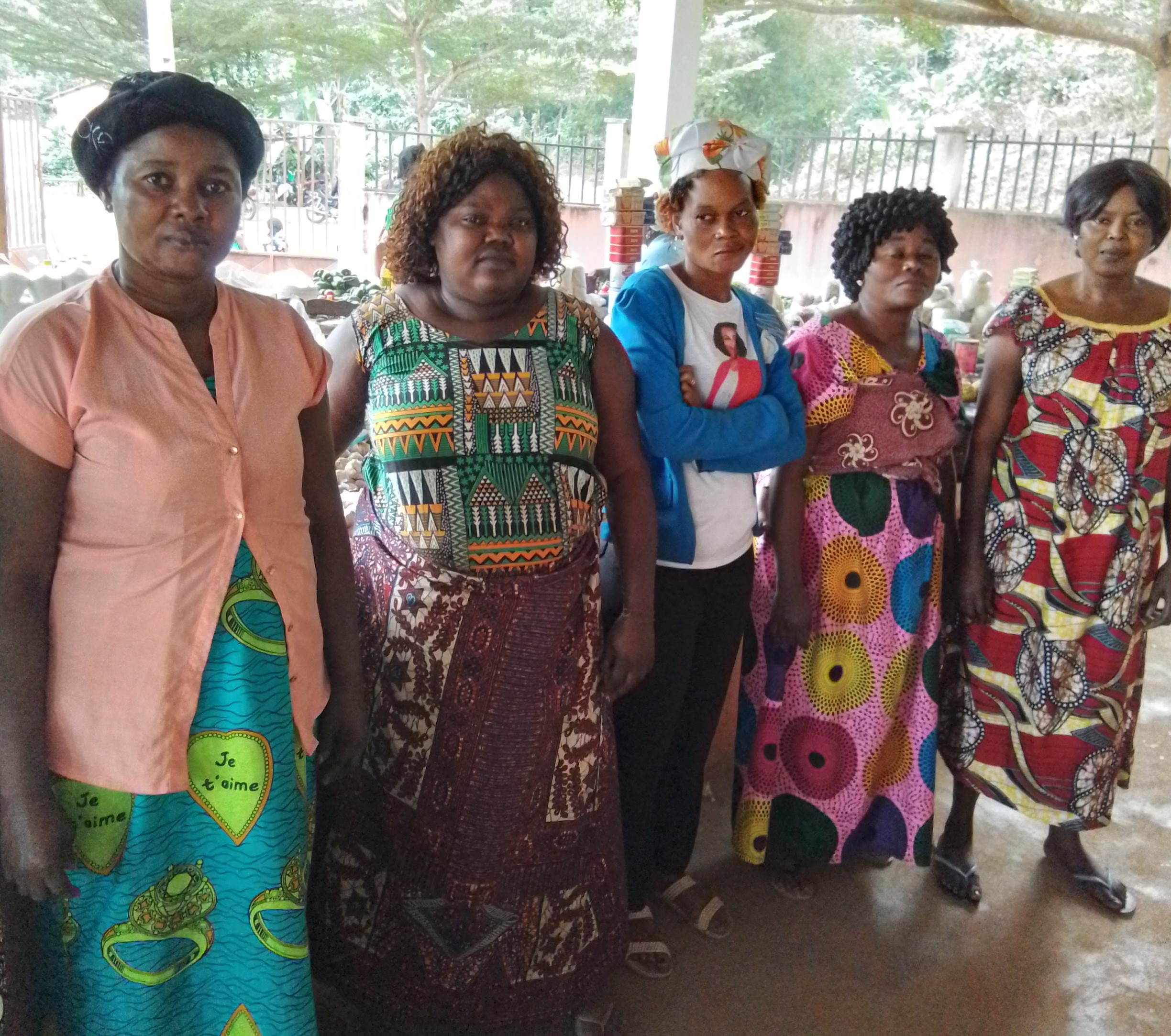CREDIT COVERAGE - Addressing the financial insecurity of families in Cabinda

How access to credit enabled the families who benefited to overcome the situation made worse by the economic crisis in Angola.
Angolans have faced many adversities as a result of the economic crisis plaguing the country, due to rising inflation and the devaluation of the national currency. Families in a situation of financial insecurity have found their situation increasingly difficult in recent years. In this context, many children have had limited access to food and, as a consequence, a large number of them have stopped going to school.
Joana António, 47, from Cabinda, is head of the family and treasurer of the collective of traders called "Grupo Bifaia". She and her children have always lived in a rented house, and the business she did was not enough to support her family. For this reason, the children stopped going to school. "We didn't even have a decent meal to eat, let alone money to pay the school fees," Joana exclaims.
The "Bifaia Group" is made up of twelve participants, all of whom are women who sell agricultural products at the Municipal Market in the provincial capital. As part of the Cabinda Province Agricultural Value Chain Development Project, the group was one of those awarded credit coverage for cooperatives organised by local traders. The project is an initiative funded by the African Development Bank in partnership with the Angolan government, implemented by World Vision in partnership with the Kuvata Cooperative, under credit management by Banco Sol.
The work plan aims to help increase the food and nutritional security of families considered to be in a situation of extreme vulnerability, thus fostering the creation of employment and self-income for more than 8,000 families. These vendors are expected to expand their businesses and increase their income, reducing the current paradigm of multidimensional poverty experienced by many families, specifically in Cabinda.
As an integrated component of the project, World Vision Angola trained these small entrepreneurs in financial literacy and business management. "Before receiving the credit we were trained, and with these lessons we drew up the business plan that we presented to Banco Sol, which then granted the loan of Kz 3,114,000.00 in 2021," said Joana. The money was distributed among all the group members according to their needs and commitment, and to date the group has already repaid around 70 per cent of the amount credited.
After Dona Joana, as she is affectionately called by her colleagues in the group, took part in the financial literacy training and received the credit, she increased her sales capital and dedicated herself to expanding her investment, expanding the scale of her sales of tomatoes, onions, chillies, tomato paste, gindungo and other products.
The growth of her business and, consequently, her profits, led Mrs Joana to realise her dream of building her own house, putting her children through school and improving her family's diet. The entrepreneur is gradually managing to make her contributions to the group in order to repay her instalment of the loan, and has already expressed an interest in obtaining a new amount once the current debt with Banco Sol has been settled.
The loan has transformed the lives of many members of the group, and they hope to be able to continue at their current pace of personal and professional development. Mrs Joana would also like to contribute to other groups being set up and trained in the community box methodology, as well as sensitising other Bifaia members to guarantee full repayment of the loan.
"It's very important that we fulfil our commitment to pay back what we've borrowed on time. That's the only way we'll grow more and our dreams will grow and come true. Our families are fine now, thanks to God and the project!" says a smiling Mrs Joana.